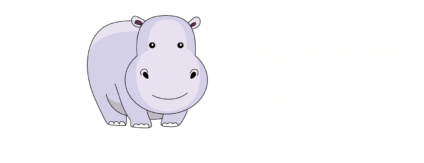Comprehensive Mental
Status Examination
A comprehensive mental status examination begins with a patient’s outer appearances and progressively proceeds into their interior life. A clinician must carefully observe and thoughtfully question a patient, all the while keeping in mind cultural context, developmental stage, and educational level. A clinician can organize their experience of a patient’s mental state using their own version of the format outlined below, which includes definitions for the essential terms for the mental status examination.
Appearance
- Ability to make and maintain eye contact
- Appropriateness to situation
- Attitude toward interview
- Cleanliness
- Dress
- Grooming
- Habitus (general constitution and physical build)
- Posture
Behavior
- Ability to relate socially during your encounter
- Ambulatory status and, if possible, gait
- Catalepsy (maintenance of any physical position after being moved by examiner)
- Posturing (striking a pose and maintaining it)
- Drooling
- Mannerisms (unnecessary behaviors that are part of goal-directed behaviors)
- Presence of waxy flexibility (resistance of limbs to passive motion that improves with ongoing movement)
- Psychomotor agitation (excessive physical activity accompanied by inner tension)
- Psychomotor retardation (generalized slowing of cognitive, emotional, or physical responses)
- Stereotypies (non-goal-directed behaviors that are unusual in frequency, but not in the action itself)
- Signs of extrapyramidal symptoms or tardive dyskinesia
- Tics (involuntary, recurrent, nonrhythmic movement or vocalization)
- Tremor
Speech and Language
- Amount
- Latency (a pause of several seconds before responding to a question)
- Rate
- Rhythm
- Tone
- Volume
- Anomia (inability to name everyday objects)
- Dysnomia (inability to find words)
Emotion
- Affect (the emotional tone conveyed by speech and behaviors)
- Alexithymia (inability to describe or recognize one’s own emotions)
- Appropriateness to situation
- Intensity
- Mood (the emotional state which is sustained throughout the encounter
- Quality
- Range
- Stability
Thought process
- Mutism (absence of speech)
- Alliteration
- Aphonia (ability to only whisper or croak)
- Thought blocking (sudden stops in the middle of a thought sequence)
- Clang association (words chosen purely for sound)
- Decreased latency of response (answering questions before you can finish asking them)
- Increased latency of response (long pauses before fairly normal speech)
- Derailment (running ideas into each other)
- Distractibility (being easily diverted by extraneous stimuli)
- Echolalia (repetition of words or statements of others)
- Flight of ideas (an illogical group of associations)
- Associations may be described as intact, circumstantial (providing unnecessary details but eventually answering a question), tangential (only initially responding to a question), or loose (providing responses unrelated to a question), or even word salad (random use of words)
- Neologisms (creation of words)
- Perseveration (repetition of the same motor or verbal response despite varied stimuli)
- Poverty of speech (brief, concrete responses with limited spontaneous speech)
- Push of speech (increased, rapid speech that is often loud and difficult to interrupt)
- Verbigeration (prolonged repetition of isolated words)
Thought Content
- Compulsions (irresistible impulses to perform a behavior)
- Obsessions (recurrent, persistent idea, image, or desire that dominates thought)
- Delusions (fixed, firm, false beliefs that are not part of a person’s culture or religion)
- Grandiosity
- Guilt
- Hallucinations (perceptions of an absent stimulus
- Illusions (misperceptions of an actual stimulus)
- Ideas of persecution
- Ideas of reference (perceptions that unrelated stimuli have a particular and unusual meaning specific to the person)
- Ideation, intent, or plan to harm self or others (suicidal, homicidal, or violent)
- Paranoia
- Passivity (submissive attitude to a perceived superior
- Phobias (intense, unreasonable, specific fears)
- Thought insertion (perceiving that your thoughts are not your own, but inserted into your mind by others)
- Thought withdrawal (perception that others can take thoughts out of your mind without consent)
Cognition
- Ability to abstract and to interpret culturally—and educationally— appropriate proverbs
- Ability to calculate
- Ability to read and write
- Fund of general information
- Learning style
- Impulse control
- Orientation
- Recent and remote memory
Insight/Judgement
- Insight into their condition, especially as to whether they deny or appreciate their problem
- Judgment (mental ability to compare choices and make appropriate decisions) as related to presenting condition and age
